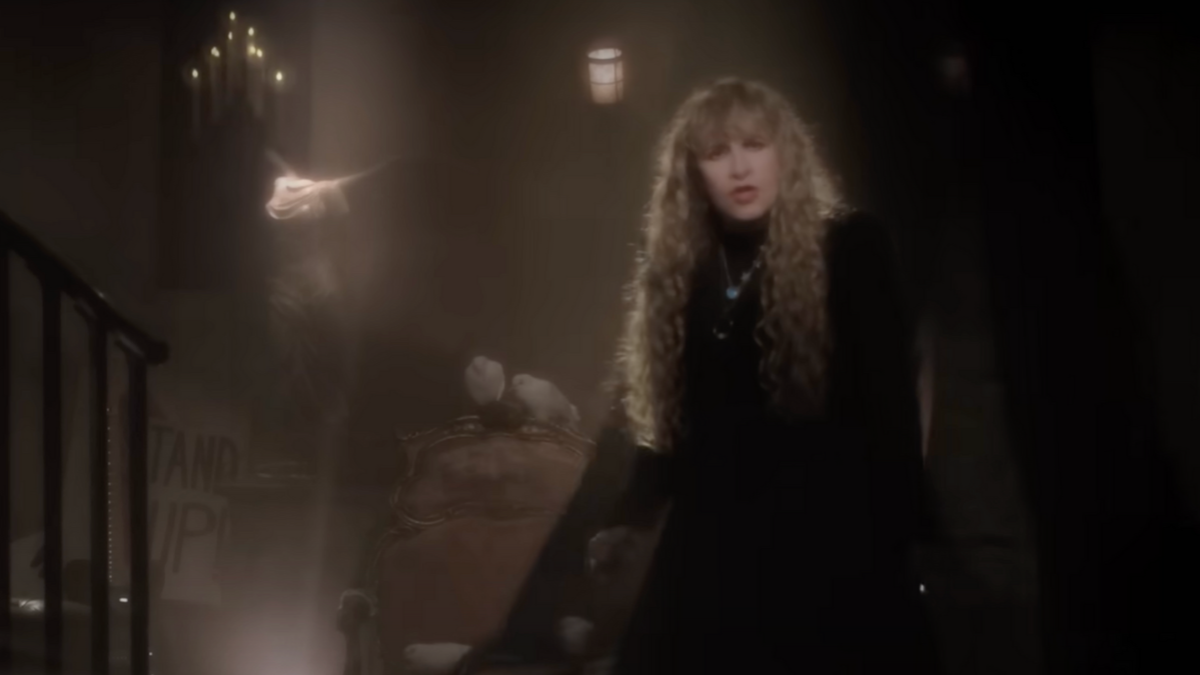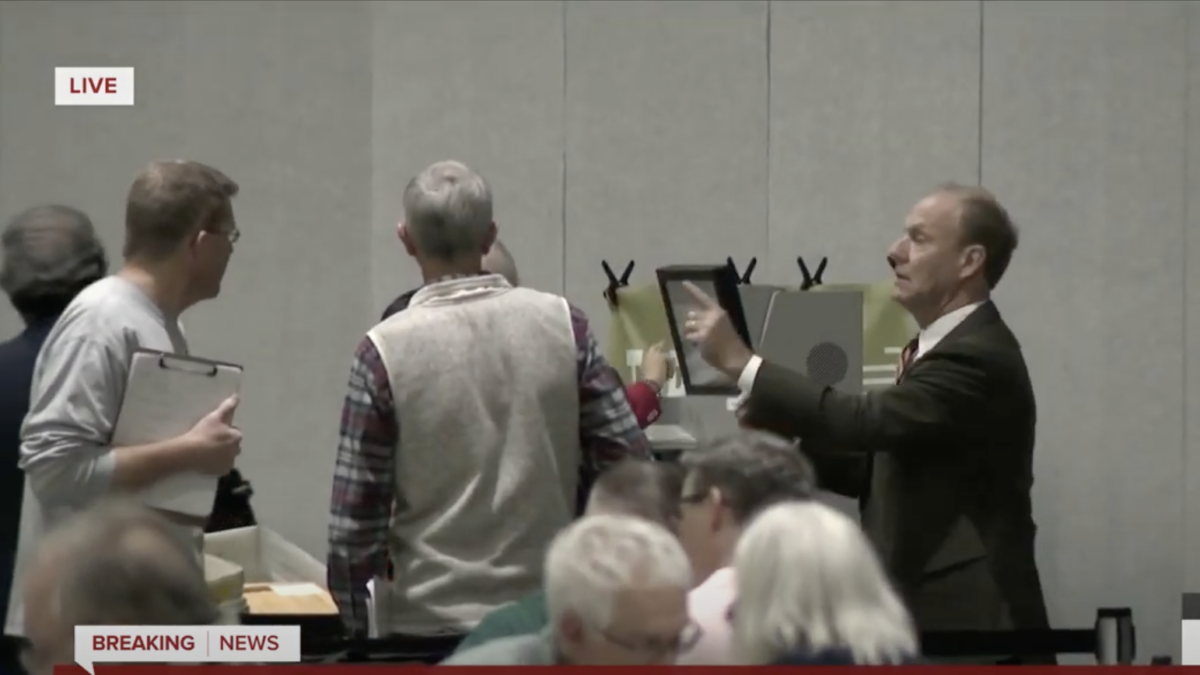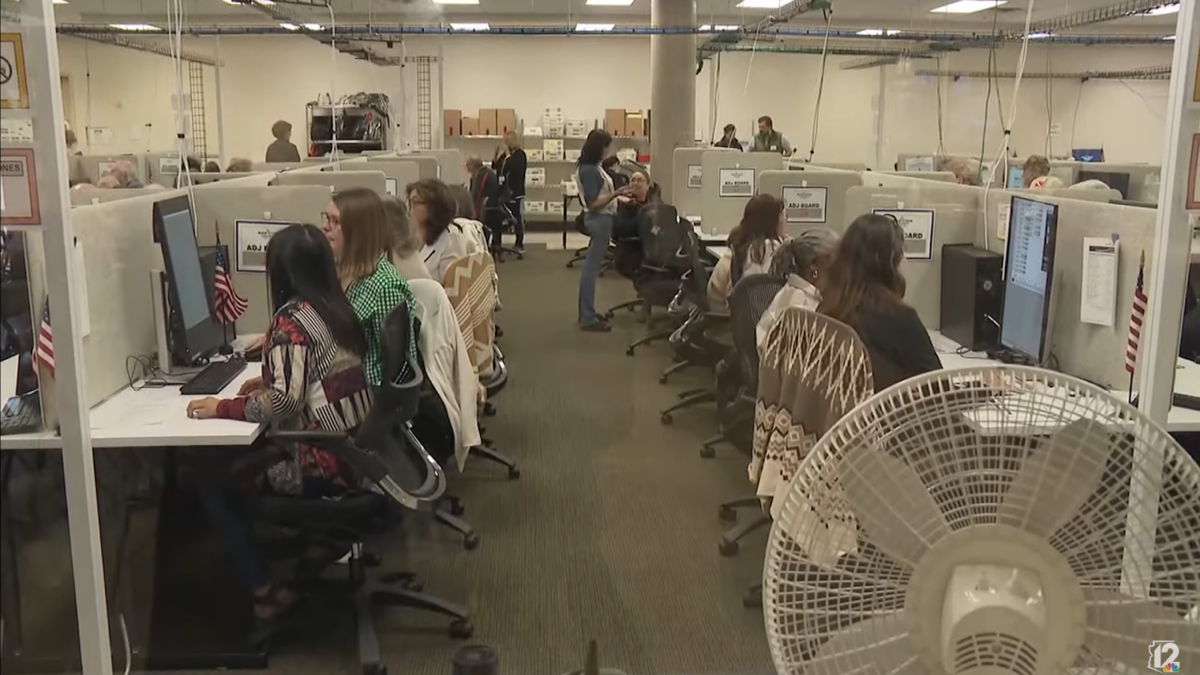
Recently a video went viral of a concert audience for the band Green Day singing the Queen classic “Bohemian Rhapsody.” It is remarkable to see more than 65,000 people singing together, in harmony no less, and the video has been shared more than 9.2 million times.
I am a huge proponent of corporate singing. Yet I wasn’t as impressed with the Green Day video as some of my friends apparently were, for a couple of reasons. A little research reveals that this was not a spontaneous, crowd-prompted singalong, but one Green Day engineered (see a similar video from 2013), and the crowd was not singing a cappella, but accompanied by a track of the Queen recording.
That doesn’t mean it’s not still cool to see 65,000 people singing together. And it would be difficult for that many people to start and stop a song without some sort of assistance. But I would wax a lot more rhapsodic if the singing had broken out, a cappella, in a little corner of the crowd and spread spontaneously through it. Sadly, though, if you took 50 of those folks and put them in a room together they would probably not be able to sing anything because as a culture we simply don’t do that anymore.
The Decline and Fall of Singing Together
At one time more people knew how to play a musical instrument than not, and communal singing was not a marvel but a commonplace. Before televisions and radio and mp3s, people used to sing together at social gatherings (with no karaoke machine in sight). It was expected that as part of a well-rounded education a person would learn to read music. That is no longer true.
It seems so obvious that it should hardly need to be argued: if we don’t teach our children to sing together, they won’t grow up with the ability to do so. Most parents seem to understand this for academics, but music study is often pursued only if the child demonstrates a special interest or “talent.” Yet when it comes to math, English, science, or history, no such “talent” is required—the child is expected to learn the material despite whether he shows any desire or inclination to do so.
Peter Kwasniewski has convincingly argued that it is as important to study the “great music” as it is to study the “great books.” But to do so requires a basic level of music literacy. The interest in music and singing evidenced in the proliferation of talent shows such as “The Voice” and “American Idol” is not being accompanied by a corresponding emphasis on the development of actual musicianship.
Instead, music study is being downgraded and cut from many school curricula, and unfortunately, where it is allowed to remain it is too often designed for “fun.” So rather than feeding students a substantive diet of classical, folk, and art music, many school band and choir directors default to Top 40 lists in a misguided effort to attract and entertain students.
In doing so they impoverish the very minds they have been given the task of nourishing. Young people today don’t need their music teachers to introduce them to “Happy”—they have MTV for that. What they need is for their music teachers to serve them up the best of their musical heritage, both classical and folk.
Unfortunately, too many of today’s music teachers, themselves the products of declining music education, are themselves bored—or befuddled—by Bach. If a teacher is bored by a subject, his students will be also. If the approach is that “We have to do this hard, serious stuff before we can get to the fun,” students’ attitudes will reflect that. But the teacher who sees the joy that is to be had in appreciating the genius of Johann Sebastian Bach will communicate that passion to his students and in so doing change their lives immeasurably for the better.
We’re Consumers, Not Producers, of Music
Music was once a means of building and deepening community; now it is primarily a mode of personal expression. It was once something widely practiced by amateurs; it is now increasingly practiced only by professionals for the purpose of public consumption. Continuing on the current course means losing one of the better parts of our humanity.
When families no longer make music together in living rooms; when groups of assembled Americans no longer sing the national anthem but instead listen to a soloist “interpret” it; when the movie musical and the variety show are cultural dinosaurs (thank you, Damien Chazelle, for the miracle of “La La Land”); when the main singing in churches is no longer done by the congregation but by an amplified band; when children’s choirs no longer learn to read music but are instead taught by rote to sing with a track; we have reached a point from which it will be very hard to turn back.
But turn back we must, and the best place to begin is with our children. If you are the parent or otherwise significant adult in the life of a young child, you are holding the future in your hands. One way to affect that future for our children and their world is to provide them with meaningful and substantive musical formation. It is becoming harder to do so in a culture that doesn’t value musicianship as it once did, but we must not stop trying. Here are a few strategies for doing so.
6 Strategies for Bringing Music Back to Life
1. Join Your Church’s Choir
If your church has a children’s choir, sign your child up. Don’t make it a negotiable or “enrichment” activity, but a required, core one, in the same way you would require him to attend church, Sunday school, or confirmation.
Encourage and support the choir director who looks at the children’s choir not as an opportunity for children to draw attention to themselves by singing cutesy songs but rather to assist the congregation in singing the Lord’s song through learning hymns, canticles, and psalms. Not only will you be serving your church and the culture, but your child as well, because having your child sing in choir is one of the most effective ways to mold his faith.
2. Voice the Importance of Music in School
Let those in positions of power in your children’s school know that you value excellent musical instruction and expect music class to consist of actual teaching of music reading, not singalongs. Demand solid, classic repertoire, not the latest hits. Fight efforts to cut music instruction. Insist that music and its attendant activities be given as much weight and consideration as athletic programs, if not more. The student who has mastered music-reading is much more likely to carry that skill to the grave than is the track or football star.
3. Stop Using Recordings So Much
Reject the use of recorded tracks everywhere you can. Tell your church you want a real musician and that one is worth paying for. Tell your child’s school they need to hire a live accompanist. Refuse to buy theater tickets for productions that don’t use real musicians for the pit orchestra.
4. Take Music Lessons
Build for the future by getting music lessons for your child. Take lessons yourself.
5. Support Live, Local Music
Go to local voice and instrumental recitals; choir, band and orchestra concerts; and theatrical, ballet, and opera productions. Take the children in your life. It doesn’t have to cost anything.
6. Sing Wherever You Can
Sing: in church, at birthday parties, at sporting events, in the shower. Statistics about tone-deafness have long been exaggerated. Almost everyone can sing with a little effort and encouragement. And if you are the rare person who truly can’t, your sincere attempts will encourage the people who hear you.
Many years ago my husband visited a church that had offered him a position as its music director. As luck (or God) would have it, he found himself worshiping near two congregation members who did seem to be legitimately tone deaf. They sang their hearts out.
After the service, his hostess came up to express her angst that of all the places he could have sat, he ended up next to the worst singers in the congregation. My husband assured her that he couldn’t have sat in a better location. Those two dear people, singing badly from the bottoms of their hearts, sang faith into his heart. He accepted the position.
I don’t mean to take anything away from those 65,000 people singing “Bohemian Rhapsody.” The song is assuredly a classic, and people singing together is a good thing. But I would be much more impressed if the singing had erupted organically and had been a song like “Greensleeves,” “The Water Is Wide,” or “Scarborough Fair.” Does the average English person even know such folk songs anymore? I don’t know. I do know that as a culture we have lost something valuable that we once had, and that it’s going to take work to get it back again.









